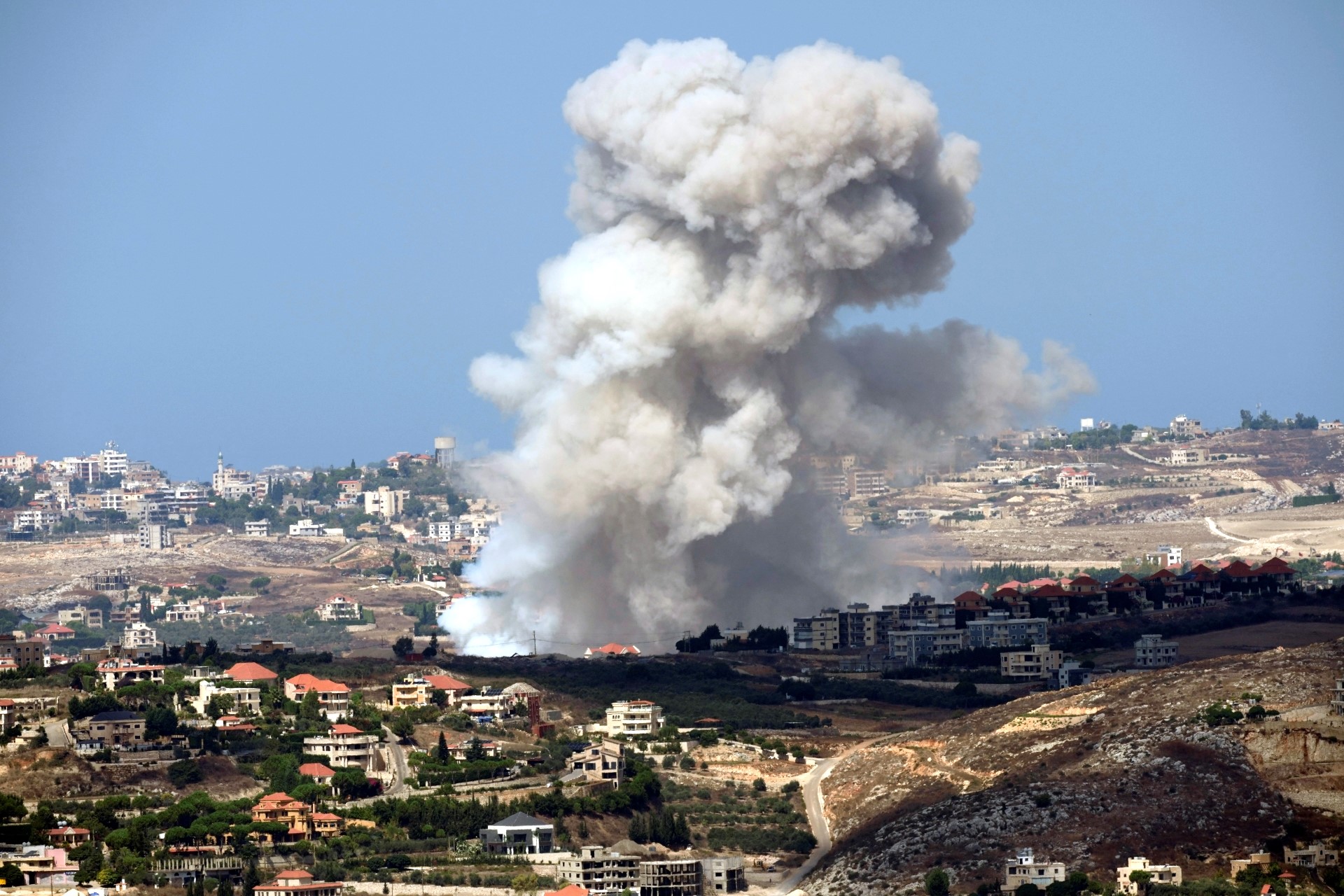 356 Dead in Israeli Air Strikes on Lebanon, Sirens Sound in Haifa[/caption]
Beirut, Lebanon: Israeli air strikes on Monday have killed 356 people in Lebanon, including 24 children, according to Lebanon's Health Ministry. This marks the deadliest escalation of violence since the conflict erupted on October 7, following attacks from Hamas on Israel. The conflict has since drawn in Hezbollah and other Iran-backed groups, intensifying tensions across the region.
In response to Hezbollah’s involvement, Israeli forces targeted approximately 1,100 Hezbollah positions in southern and eastern Lebanon, including a strike in Beirut. Sources close to Hezbollah reported that the strike aimed at a key commander, Ali Karake.
The violence has heavily impacted civilians, with Lebanese authorities confirming that many of the victims were children, women, and paramedics. Additionally, approximately 5,000 people have been injured since the start of the strikes.
356 Dead in Israeli Air Strikes on Lebanon, Sirens Sound in Haifa[/caption]
Beirut, Lebanon: Israeli air strikes on Monday have killed 356 people in Lebanon, including 24 children, according to Lebanon's Health Ministry. This marks the deadliest escalation of violence since the conflict erupted on October 7, following attacks from Hamas on Israel. The conflict has since drawn in Hezbollah and other Iran-backed groups, intensifying tensions across the region.
In response to Hezbollah’s involvement, Israeli forces targeted approximately 1,100 Hezbollah positions in southern and eastern Lebanon, including a strike in Beirut. Sources close to Hezbollah reported that the strike aimed at a key commander, Ali Karake.
The violence has heavily impacted civilians, with Lebanese authorities confirming that many of the victims were children, women, and paramedics. Additionally, approximately 5,000 people have been injured since the start of the strikes.
356 Dead in Israeli Air Strikes on Lebanon, Sirens Sound in Haifa
Published on September 23, 2024 by Admin
[caption id="attachment_1587" align="alignnone" width="1920"] 356 Dead in Israeli Air Strikes on Lebanon, Sirens Sound in Haifa[/caption]
Beirut, Lebanon: Israeli air strikes on Monday have killed 356 people in Lebanon, including 24 children, according to Lebanon's Health Ministry. This marks the deadliest escalation of violence since the conflict erupted on October 7, following attacks from Hamas on Israel. The conflict has since drawn in Hezbollah and other Iran-backed groups, intensifying tensions across the region.
In response to Hezbollah’s involvement, Israeli forces targeted approximately 1,100 Hezbollah positions in southern and eastern Lebanon, including a strike in Beirut. Sources close to Hezbollah reported that the strike aimed at a key commander, Ali Karake.
The violence has heavily impacted civilians, with Lebanese authorities confirming that many of the victims were children, women, and paramedics. Additionally, approximately 5,000 people have been injured since the start of the strikes.
356 Dead in Israeli Air Strikes on Lebanon, Sirens Sound in Haifa[/caption]
Beirut, Lebanon: Israeli air strikes on Monday have killed 356 people in Lebanon, including 24 children, according to Lebanon's Health Ministry. This marks the deadliest escalation of violence since the conflict erupted on October 7, following attacks from Hamas on Israel. The conflict has since drawn in Hezbollah and other Iran-backed groups, intensifying tensions across the region.
In response to Hezbollah’s involvement, Israeli forces targeted approximately 1,100 Hezbollah positions in southern and eastern Lebanon, including a strike in Beirut. Sources close to Hezbollah reported that the strike aimed at a key commander, Ali Karake.
The violence has heavily impacted civilians, with Lebanese authorities confirming that many of the victims were children, women, and paramedics. Additionally, approximately 5,000 people have been injured since the start of the strikes.
 356 Dead in Israeli Air Strikes on Lebanon, Sirens Sound in Haifa[/caption]
Beirut, Lebanon: Israeli air strikes on Monday have killed 356 people in Lebanon, including 24 children, according to Lebanon's Health Ministry. This marks the deadliest escalation of violence since the conflict erupted on October 7, following attacks from Hamas on Israel. The conflict has since drawn in Hezbollah and other Iran-backed groups, intensifying tensions across the region.
In response to Hezbollah’s involvement, Israeli forces targeted approximately 1,100 Hezbollah positions in southern and eastern Lebanon, including a strike in Beirut. Sources close to Hezbollah reported that the strike aimed at a key commander, Ali Karake.
The violence has heavily impacted civilians, with Lebanese authorities confirming that many of the victims were children, women, and paramedics. Additionally, approximately 5,000 people have been injured since the start of the strikes.
356 Dead in Israeli Air Strikes on Lebanon, Sirens Sound in Haifa[/caption]
Beirut, Lebanon: Israeli air strikes on Monday have killed 356 people in Lebanon, including 24 children, according to Lebanon's Health Ministry. This marks the deadliest escalation of violence since the conflict erupted on October 7, following attacks from Hamas on Israel. The conflict has since drawn in Hezbollah and other Iran-backed groups, intensifying tensions across the region.
In response to Hezbollah’s involvement, Israeli forces targeted approximately 1,100 Hezbollah positions in southern and eastern Lebanon, including a strike in Beirut. Sources close to Hezbollah reported that the strike aimed at a key commander, Ali Karake.
The violence has heavily impacted civilians, with Lebanese authorities confirming that many of the victims were children, women, and paramedics. Additionally, approximately 5,000 people have been injured since the start of the strikes.
Categories: World